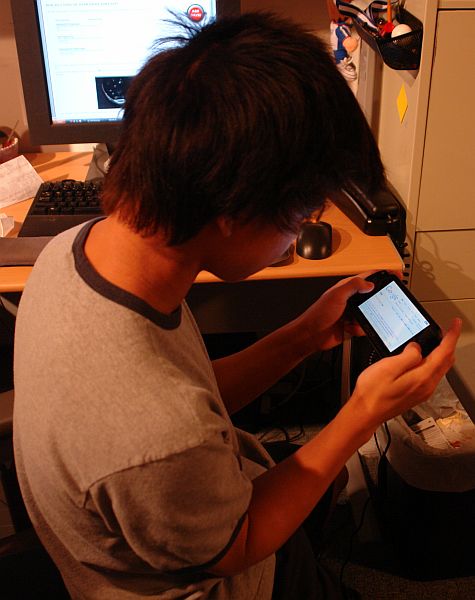I’m not the biggest fan of Buckminister Fuller, but I do respect people who follow his work. I was reading a blog entry on “A sentence about yourself“, where Flemming Funch cited Buckminister Fuller’s “one-sentence statement of his life objectives”. This contained the phrase “Comprehensive Anticipatory Design Science” … which I hadn’t seen before.
There’s a section on Design Science at the Buckminister Fuller Institute where there’s a description. Looking at the Design Science Methodology description, the approach looks to be pretty teleological (i.e. where do we want to be, where are we now). This is much in line with idealized design approach developed by Russell Ackoff.
Both Fuller and Ackoff were architects, so parallels shouldn’t be surprising. However, I’ve fallen off design-oriented (teleological) philosophies towards situated practice (phenomenological) approaches. I started with situated learning (from Etienne Wenger), and then dug in farther with theory of practice (from Pierre Bourdieu) and disclosing new worlds (Charles Spinosa, Fernando Flores and Hubert Dreyfus).
Still, I was intrigued to find a book by Amy C. Edmondson on A Fuller Explanation: The Synergetic Geometry of R. Buckminster Fuller. It’s the type of book that I would probably buy, except the 1987/1992 book is out of print (and really expensive, used). I may have to check it out of the University of Toronto library … after I’m doing working on my dissertation!
Another reason for triggering on this thread was that I’ve seen Amy Edmondson (from Harvard) visiting at the Rotman School Integrative Thinking seminars.… Read more (in a new tab)
I’m not the biggest fan of Buckminister Fuller, but I do respect people who follow his work. I was reading a blog entry on “A sentence about yourself“, where Flemming Funch cited Buckminister Fuller’s “one-sentence statement of his life objectives”. This contained the phrase “Comprehensive Anticipatory Design Science” … which I hadn’t seen before.
There’s a section on Design Science at the Buckminister Fuller Institute where there’s a description. Looking at the Design Science Methodology description, the approach looks to be pretty teleological (i.e. where do we want to be, where are we now). This is much in line with idealized design approach developed by Russell Ackoff.
Both Fuller and Ackoff were architects, so parallels shouldn’t be surprising. However, I’ve fallen off design-oriented (teleological) philosophies towards situated practice (phenomenological) approaches. I started with situated learning (from Etienne Wenger), and then dug in farther with theory of practice (from Pierre Bourdieu) and disclosing new worlds (Charles Spinosa, Fernando Flores and Hubert Dreyfus).
Still, I was intrigued to find a book by Amy C. Edmondson on A Fuller Explanation: The Synergetic Geometry of R. Buckminster Fuller. It’s the type of book that I would probably buy, except the 1987/1992 book is out of print (and really expensive, used). I may have to check it out of the University of Toronto library … after I’m doing working on my dissertation!
Another reason for triggering on this thread was that I’ve seen Amy Edmondson (from Harvard) visiting at the Rotman School Integrative Thinking seminars.… Read more (in a new tab)



